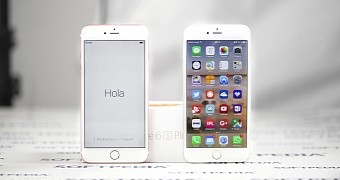Apple is one of the companies that are trying to fight for users’ privacy against governments across the world, and in a recent interview on CBS, the company’s CEO Tim Cook has explained why they still refuse to install a backdoor that would allow state agencies to access a protected device.
Earlier this year, the US Department of Justice asked Apple to provide access to iPhone data that could be used as evidence in a criminal case.
The Cupertino-based company, however, refused to aid investigators and bypass the iPhone passcode, saying that the device was encrypted, and not only would cracking the passcode violate privacy, but it was also impossible for the company to break encryption.
CEO Tim Cook has often been accused of not taking the government's side, but in an interview for 60 Minutes, he explains that his company cannot go for such a measure because adding a backdoor that would allow to access data even without a passcode could be used by both good and bad guys.
It’s all about the company’s philosophy
“Here's the situation is on your smartphone today, on your iPhone, there's likely health information, there's financial information. There are intimate conversations with your family, or your co-workers. There's probably business secrets and you should have the ability to protect it,” he has said.
“And the only way we know how to do that, is to encrypt it. Why is that? It's because if there's a way to get in, then somebody will find the way in. There have been people that suggest that we should have a back door. But the reality is if you put a back door in, that back door's for everybody, for good guys and bad guys.”
Previously, Apple announced that, starting with iOS 8, it was no longer possible to extract any information from encrypted devices. iOS 7 and older can be accessed by Apple, but only certain types of unencrypted information can actually be retrieved.

 14 DAY TRIAL //
14 DAY TRIAL //